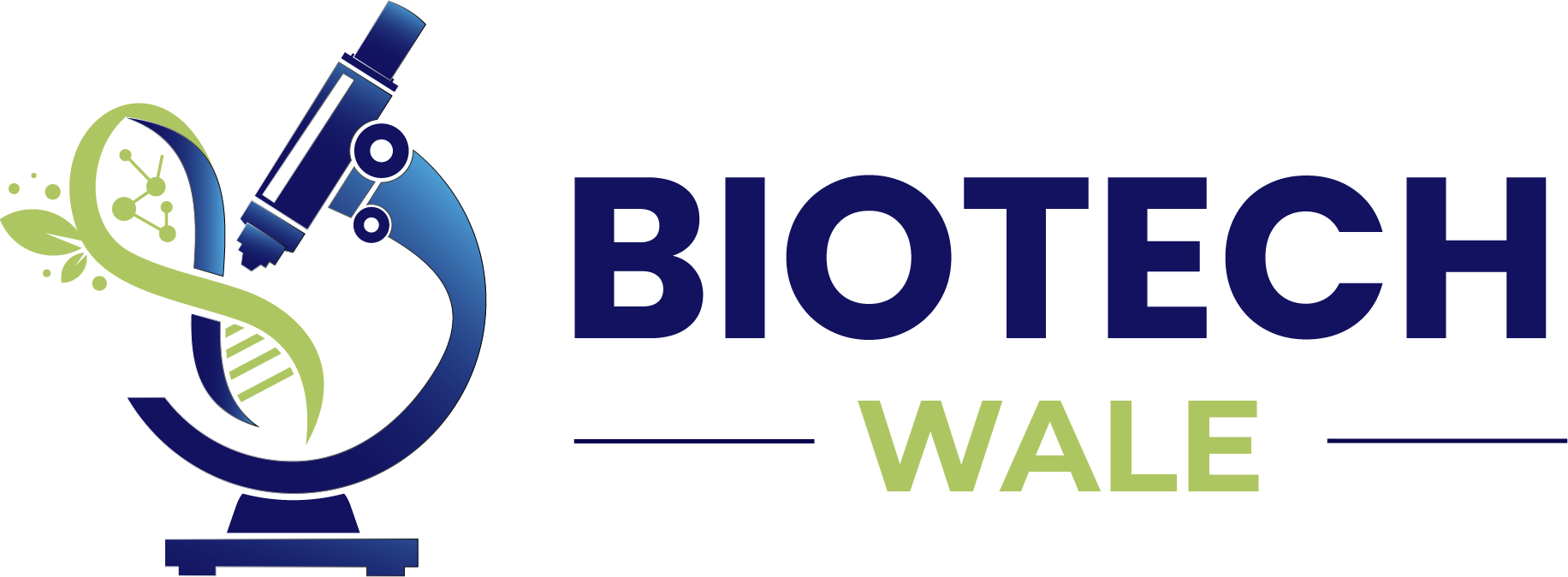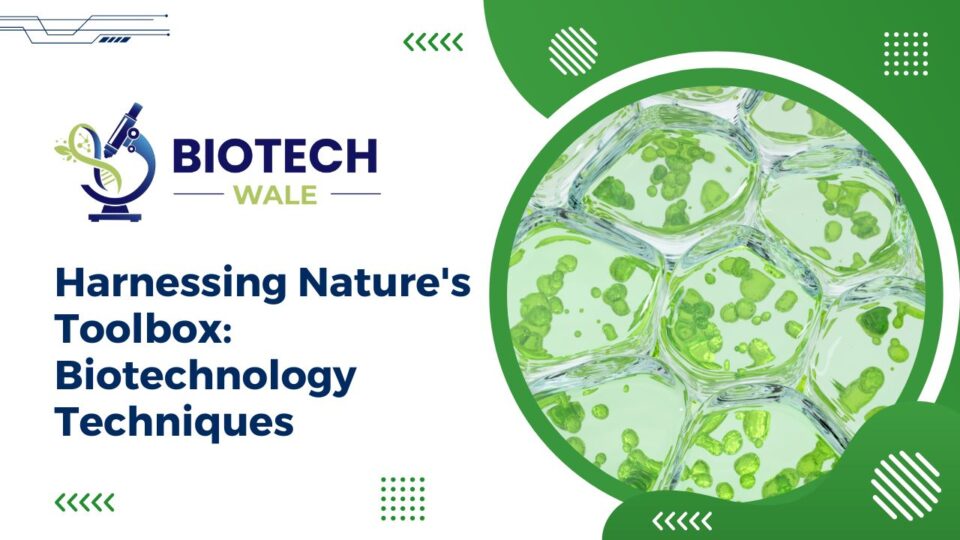Introduction to Biotechnology
Welcome to the fascinating world of biotechnology, where science merges with nature to create endless possibilities. From enhancing crop yields to curing diseases, biotechnology techniques have revolutionized the way we interact with the natural world. Join us on a journey as we explore how these innovative tools are shaping our future and harnessing nature’s incredible toolbox for the betterment of society.
Types of Biotechnology Techniques
Biotechnology techniques encompass a wide array of methods that harness the power of living organisms to improve our lives. One key technique is recombinant DNA technology, which involves combining DNA from different sources to create genetic modifications. Another important technique is fermentation, which uses microorganisms like yeast and bacteria to produce valuable substances such as antibiotics and biofuels.
Bioprocessing is another essential biotechnology technique used in industries like pharmaceuticals and food production to optimize the growth and metabolism of microorganisms for desired products. Bioremediation utilizes living organisms to clean up pollutants in the environment, offering sustainable solutions to environmental challenges.
Moreover, tissue culture techniques are pivotal in cloning plants or producing genetically identical cells for research purposes. These diverse biotechnology techniques showcase the innovative ways we can manipulate biological systems for various applications across different fields.
Gene Editing: CRISPR and Beyond
Gene editing has revolutionized the field of biotechnology, with CRISPR being at the forefront of this cutting-edge technology. This powerful tool allows scientists to precisely modify genetic material with unprecedented accuracy. The potential applications of CRISPR seem boundless, from correcting genetic defects to developing new treatments for diseases.
Beyond CRISPR, other gene editing techniques are also emerging, each offering unique capabilities and possibilities. These advancements open up a whole new world of opportunities in biotechnology and medical research.
Imagine being able to eradicate hereditary illnesses by simply editing out the problematic genes or creating genetically modified crops that are more resilient to pests and environmental stressors. Gene editing holds the key to solving some of the most pressing challenges facing humanity today.
As researchers continue to push the boundaries of what is possible with gene editing technologies, we can only anticipate even more groundbreaking discoveries on the horizon.
Genetic Engineering in Agriculture
Genetic engineering in agriculture has revolutionized the way we grow crops and raise livestock. By manipulating the genetic makeup of plants and animals, scientists can enhance desirable traits such as resistance to pests, diseases, and environmental stressors. This not only increases crop yields but also reduces the need for harmful pesticides and herbicides.
Through biotechnology techniques like gene editing, researchers are working on developing drought-tolerant crops that can thrive in challenging conditions. Additionally, genetically modified organisms (GMOs) have been designed to contain essential nutrients that can address malnutrition in developing countries.
Critics argue about the potential risks of GMOs on human health and the environment. However, proponents believe that genetic engineering holds immense promise for sustainable agriculture by reducing food waste and increasing food security worldwide.
As technology continues to advance, genetic engineering will play a crucial role in shaping the future of agriculture by creating more resilient and productive crops to feed a growing population sustainably.
Medical Breakthroughs with Biotechnology
In the realm of medical breakthroughs, biotechnology has emerged as a powerful tool revolutionizing healthcare. By harnessing the potential of genetic engineering and molecular biology, scientists are paving the way for personalized medicine tailored to individual needs.
From cutting-edge gene therapies to innovative diagnostic tools, biotechnology is shaping the future of healthcare by unlocking new treatment options and enhancing patient outcomes. The development of targeted cancer therapies and precision medicine approaches highlights the transformative impact of biotechnological advancements in combating complex diseases.
Moreover, advancements in regenerative medicine hold promise for tissue engineering and organ transplantation, offering hope to patients facing debilitating conditions. Biotechnology’s role in developing vaccines against infectious diseases showcases its vital contribution to global health initiatives.
As researchers continue to push boundaries and explore new frontiers in biomedical science, the possibilities seem endless for leveraging biotechnology to address unmet medical needs and improve quality of life for individuals worldwide.
The Role of Biotechnology in Modern Society
Biotechnology plays a pivotal role in modern society, shaping various aspects of our lives. From revolutionizing healthcare to enhancing food production, its impact is undeniable. In medicine, biotech innovations have led to the development of personalized treatments and diagnostic tools tailored to individual genetic makeup. This has transformed the way we approach disease prevention and management.
In agriculture, biotechnology techniques like genetic engineering have enabled the creation of crops with increased resistance to pests and diseases. This not only boosts yield but also reduces the need for harmful pesticides. Biotech advancements have also paved the way for sustainable solutions in industries such as energy production and environmental conservation.
Moreover, biotechnology continues to drive research in areas like biofuels, pharmaceuticals, and biomaterials. As we navigate complex challenges like climate change and global health crises, harnessing nature’s toolbox through biotechnology will be crucial for building a more resilient and sustainable future societal landscape.
Applications of Biotechnology in Various Industries
From agriculture to energy, biotechnology is making waves in various industries. In agriculture, genetically modified crops are increasing yields and improving resistance to pests. The food industry benefits from biotech by creating healthier and more sustainable products through fermentation processes.
In the pharmaceutical sector, biotechnology plays a crucial role in developing cutting-edge drugs and treatments for complex diseases. Bioprocessing techniques help streamline drug production and reduce costs significantly.
The environmental industry utilizes bioremediation techniques to clean up polluted sites and improve air quality. Biofuels derived from renewable sources offer a greener alternative to traditional fossil fuels, reducing carbon emissions.
Even in the textile industry, biotechnology is revolutionizing fabric production with sustainable materials like bio-based fibers. In cosmetics, ingredients sourced through biotech methods are safer and more effective than their synthetic counterparts.
With its vast potential across diverse sectors, biotechnology continues to drive innovation and create solutions for a better future.
Ethical concerns and Controversies surrounding Biotechnology
As with any groundbreaking technology, biotechnology comes with its fair share of ethical concerns and controversies. One major issue is the potential misuse of genetically modified organisms (GMOs) and the impact they may have on ecosystems. Critics argue that altering the genetic makeup of organisms could have unforeseen consequences on biodiversity.
Another hotly debated topic is the ownership and patenting of genetically modified seeds by large corporations. This raises questions about access to food resources, farmer rights, and monopoly control over agriculture. The ethical implications of gene editing in humans also spark heated discussions regarding designer babies, genetic enhancement, and consent.
Additionally, there are concerns surrounding data privacy and security in biotechnology research, as well as the moral dilemmas posed by cloning and stem cell research. These complex issues highlight the need for ongoing dialogue between scientists, policymakers, ethicists, and the public to navigate the ethical landscape of biotechnology responsibly.
The Future of Biotechnology
As we look ahead to the future of biotechnology, the possibilities seem limitless. With advancing technology and innovative research, biotechnology is poised to revolutionize various industries from healthcare to agriculture. Scientists are continuously developing new techniques and tools that allow for more precise gene editing and genetic manipulation.
In the coming years, we can expect even greater breakthroughs in personalized medicine, where treatments are tailored to individual patients based on their genetic makeup. Biotechnology may also play a crucial role in addressing global challenges such as food security and environmental sustainability through the development of genetically modified crops that are more resilient to climate change.
Furthermore, as our understanding of genetics deepens, we may see enhanced biofuel production methods and improved disease diagnostics. The integration of artificial intelligence with biotechnology could further accelerate advancements in drug discovery and therapeutic interventions. Exciting times lie ahead as we harness nature’s toolbox to tackle complex problems and improve quality of life for people around the world.
Conclusion
In the grand scheme of things, biotechnology is not just a scientific field but a gateway to endless possibilities. From enhancing crop yields to curing genetic diseases, the impact of biotechnology on our lives is undeniable.
As we continue to explore and harness nature’s toolbox through innovative techniques like gene editing and genetic engineering, it is crucial to navigate ethical concerns with caution. The future of biotechnology holds promise for groundbreaking discoveries that could revolutionize industries across the board.
So let us embrace this era of biological innovation with an open mind and a sense of responsibility. By leveraging the power of biotechnology, we have the potential to shape a brighter and more sustainable future for generations to come.





Average Rating